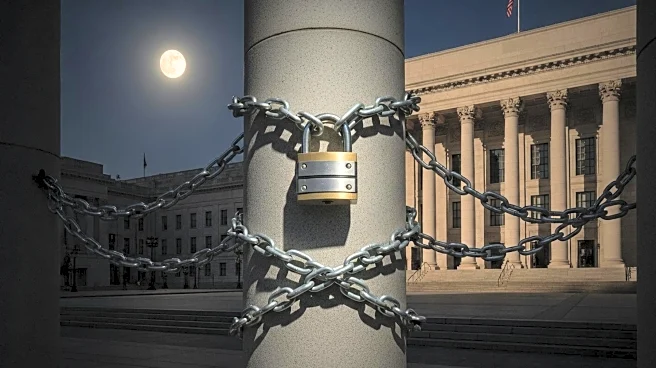What is the story about?
What's Happening?
Portland Mayor Keith Wilson has declined to comply with most of the federal government's demands regarding security measures around the U.S. Immigration and Customs Enforcement (ICE) facility in South Portland. The federal government, represented by Scott Bradford from the U.S. Attorney’s Office in Oregon, requested the establishment of a permanent perimeter to distance protesters from the ICE building. This request comes amid ongoing protests at the site, which have prompted increased security measures, including police presence and traffic barricades. Despite these demands, Mayor Wilson has chosen not to implement the suggested changes, maintaining the current approach to handling the protests.
Why It's Important?
The decision by Mayor Wilson to reject federal demands highlights the ongoing tension between local and federal authorities regarding immigration enforcement and protest management. This situation underscores the broader national debate on immigration policies and the rights of protesters. The refusal to establish a permanent perimeter may embolden protest groups, potentially leading to increased demonstrations. Conversely, it may also strain relations between Portland's local government and federal agencies, impacting future cooperation on security and law enforcement matters. The outcome of this standoff could influence how other cities manage similar situations, affecting public policy and civil rights discussions across the U.S.
What's Next?
As the situation develops, it is likely that both local and federal authorities will continue to negotiate terms for managing protests around the ICE facility. Mayor Wilson's stance may prompt further dialogue or pressure from federal agencies seeking compliance with their security protocols. Protesters may also escalate their activities in response to the mayor's support, potentially leading to more significant demonstrations. The ongoing presence of police and security measures indicates that authorities are preparing for various outcomes, including potential clashes or disruptions. The resolution of this issue will be closely watched by stakeholders involved in immigration policy and civil rights advocacy.















